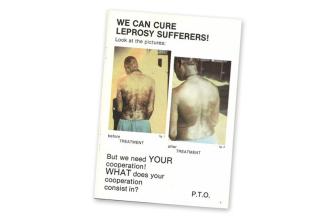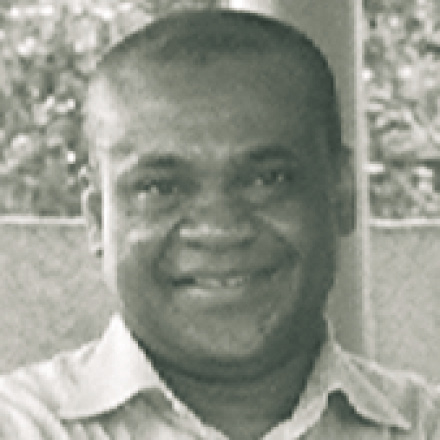Neglected diseases
Linking theoretical learning and practical experience

“Yes, I have seen this kind of skin patches many times before, but I did not know that this could be leprosy.” This is what Anges Okwori said, when Eli Ogang of Uganda’s National TB and Leprosy Programme (NTLP) put on display some pictures during a presentation at a district health facility in Oyam. Okwori works there as a nurse, and Ogang was giving her team a one-day training on leprosy. The next day, they would all take part in a skin camp that was hosted in the context of the Talking Health project (see main article).
Ogang’s lecture included all issues of immediate relevance to the district-level health workers – from the first symptoms of simple skin irritation, to the measurement of the loss of sensation with probes, to the treatment regiments and the many ways of rehabilitation, should patients have already developed disabilities.
Lost toes and fingers don’t grow back, of course, but a patient’s quality life can benefit from tailor-made orthopaedic appliances like special sandals, for example. Moreover, further damage to limbs that have lost their sensitivity can be prevented.
The team was not only informed about the causes, signs, diagnosis and management of the disease, but also briefed on the social impact such as stigmatisation and exclusion from communities. The ultimate goal, after all, is to rehabilitate patients and enable them to live good lives in spite of their affliction.
At the skin camp one day later, the team applied the newly gained knowledge. Several hundred patients came to the event, and in difficult cases, the local health-staff consulted the expert who had come to Oyam for this event from the regional referral hospital in Lira. Linking theoretical learning with practical experience helps to build lasting knowledge that is not forgotten as fast as abstract insights normally are.
After the skin camp, Okwori said: “I can now tell the difference between allergies, bacterial infections and fungal infection. Before, I would just treat them like fungal infections.”











